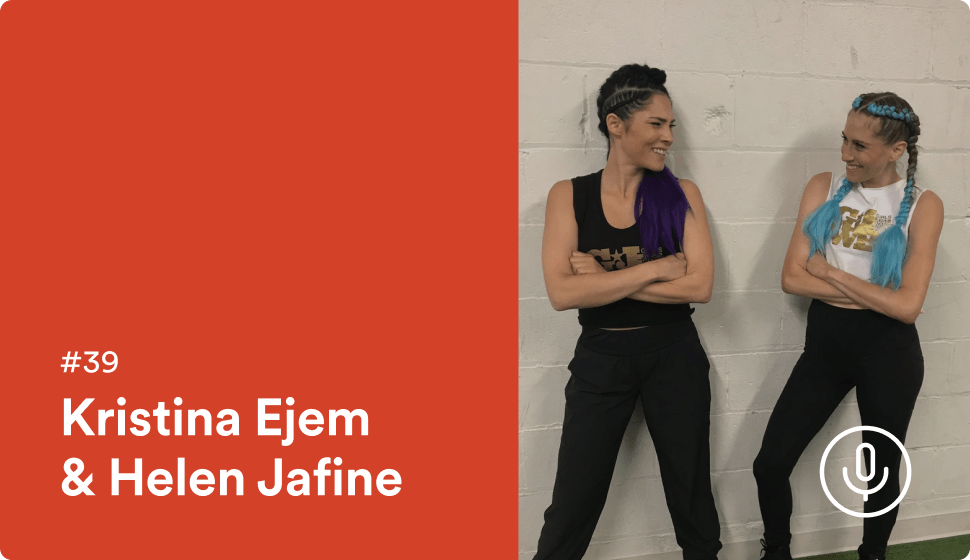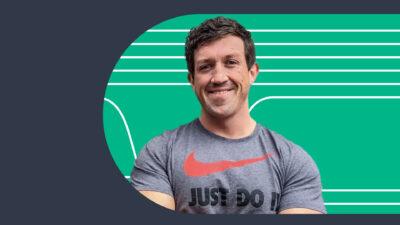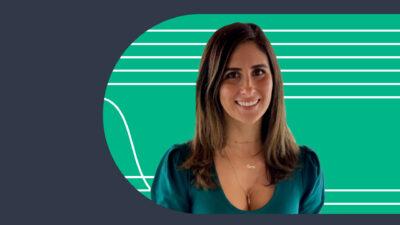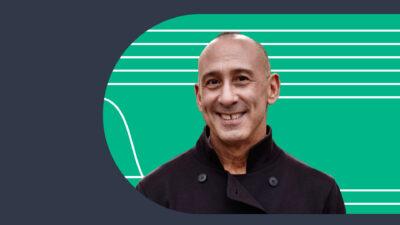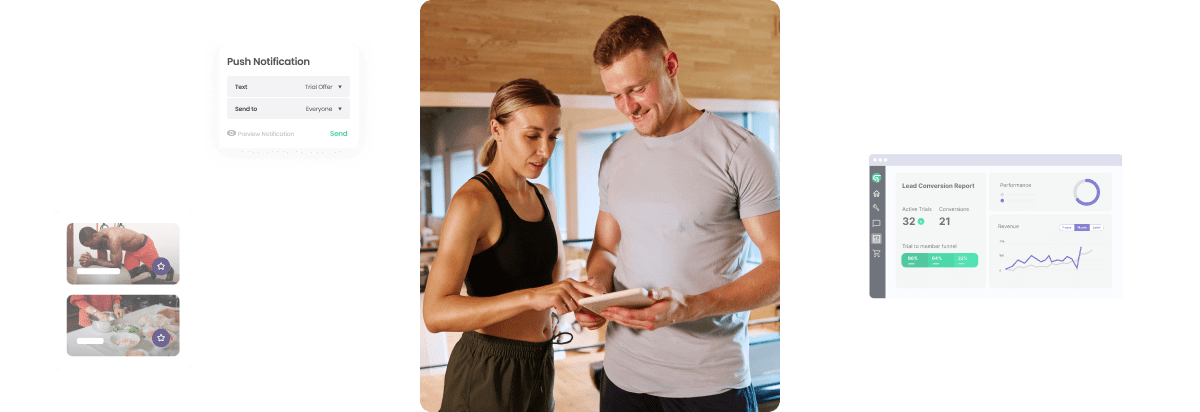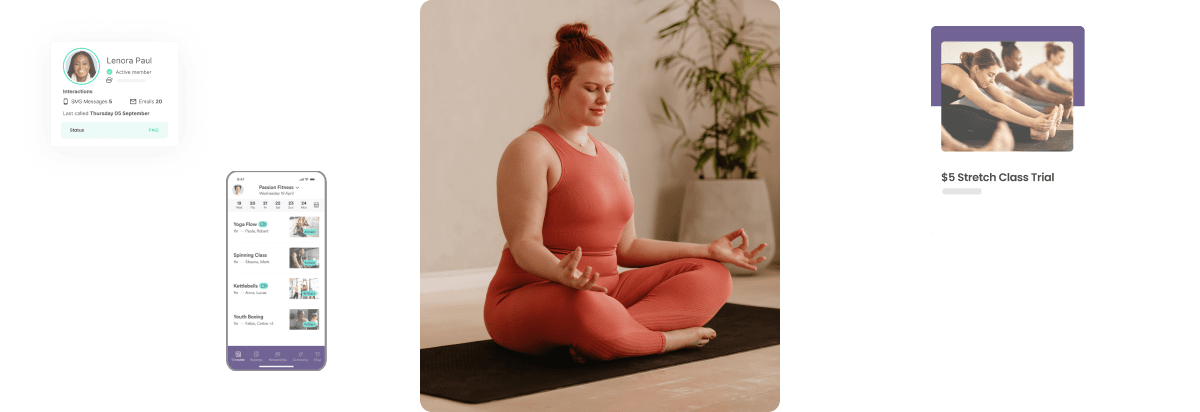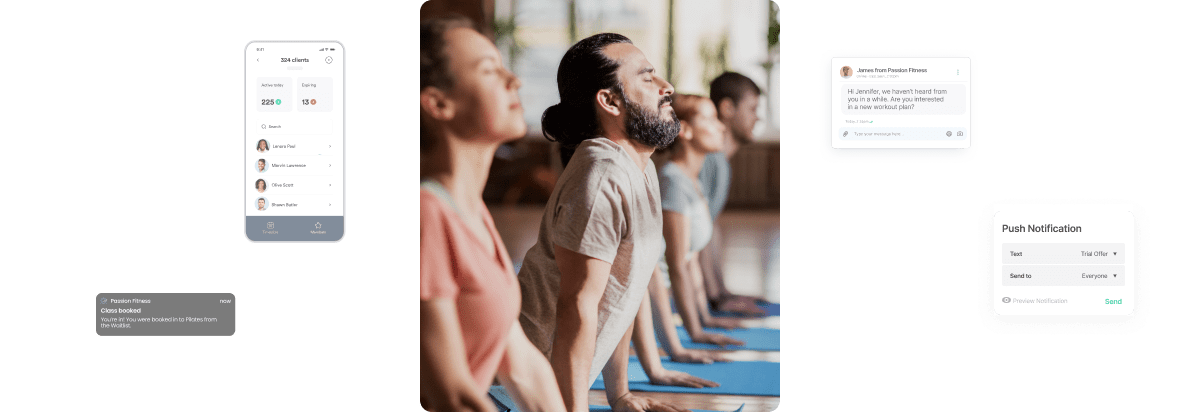This week we talk to the owners of a studio who plan to come out of lockdown with a determination to be more successful than ever. Kristina Ejem and Helene Jafine operate Girls Just Wanna Box, a studio based in Toronto on a mission to unite women through their love of boxing.
In this episode, they talk about building a memorable brand from the early days, going online during COVID-19, how they’re opening back up, and their unique approach to adapting their offering for different skill levels.
Episode Link
This episode of The Fitness Founders Podcast can be found on Spotify, Apple Podcasts, and anywhere you get your podcasts.
Transcript
Kevin: How is it going everyone and welcome to The Fitness Founders Podcast. I’m Kevin Mannion, VP Marketing here at Glofox. This week we talk to Helene and Kristina from Girls Just Wanna Box, a studio based in Toronto on a mission to unite women through their love of the sport of boxing.
In this episode, they talk about building a memorable brand from the early days, going online during COVID, how they are opening back up, as well as their unique approach to making boxing appealing from beginner to professional. They have a lot to say, so let’s dive in!
Okay, so, Kristina and Helene, welcome to the show!
Helene & Kristina: Thank you for having us!
Kevin: Well, thank you for coming on. It’s great to have you on. We’re always really interested in talking to gym and studio owners, especially you guys, Girls Just Wanna Box seems to have a lot of cool stuff going on, built a great brand, so I’m really looking forward to talking today. Okay, so, maybe you guys just want to introduce yourselves and just tell us a little bit about yourselves and about the business.
Kristina: Sure! I can start. Again, we don’t have four hours for origin stories so I’ll give the coles notes. I guess I kind of grow up in a small Norther Ontario city that was actually a bit of a boxing town, so there’s fights there all the time. When I grew up I was actually figure-skating as you do in the [unclear – 1:35] and played a lot of sports. Obviously, athletics played a very big part of my life. When I moved to go to the university, more into Southern Ontario in Canada, and I finally said, “Okay, I’m going to start boxing”, and just fell in love and that was kind the end of it. That’s where the boxing started for me.
Coming out of the university where I took Marketing bachelor’s degree, I did a lot of boxing during university and then came out of it and ran a gym actually. My boxing coach got me a job as the GM at a local gym because I always thought I wanted to run a gym so it was good to kind of experiment with that and see what a typical fitness club is all about and add a bit of boxing elements to it. I did a skipping class, I added some technique classes. And then after that I ended up taking a couple of years in Japan, went and live there, taught English. Actually taught boxing to a lot of expats. I ended up coming back really with the intent to fight and that’s what I wanted to do. I just want to be a boxer. I was going to train and so I found my coach in Sudbury, did some training with him and then realized sadly women’s boxing was not in the Olympics. Actually growing up in any other sport that’s the goal, right, to get to the Olympics. That was bit of a slap in the face at that time but I continued on and I came to Toronto and I ended up finding some good coaches here and I move more into… I finally had my first fight but it was in an event that I put on. I was an event producer so that’s why. I can’t train and fight in someone’s boxing club in a basement somewhere. I wanted an event.
Fast forward, my first event that I fought in… Don’t put on events that you fight in by the way. I ended up doing something that we call corporate boxing events. I think it’s a little more prevalent in Europe where every day corporate person gets in the ring to fight. It’s not as prevalent here. So I did that for 8 years which was amazing because we’ve built a very big community. Through that, we’ve built a gym called Clancy’s Boxing Academy in Toronto to house the corporate fighters and then create different vibe around boxing.
Enter Ms. Hellene who can tell you a bit more about what she did and she actually was boxing, working at a club in England. I’ll let her get to that. And then someone who fought in Agency Wars was in England, met her at a gym, told her about Clancy’s and she came over to Clancy’s when she came back to Canada. We kind of bonded through Girls Just Wanna Box which was it really came out of me having a fight and just kind of… It was 10 years to get a fight and really just sat there and was like, “Wow! Girls want to box.” Why it is so difficult? Yeah, there you go and Girls Just Wanna Box just kind of born out of the need that there is not a lot of support specifically for women in boxing especially in Canada. I know it’s a bit more progressive in Europe. But, yeah, that’s kind of where that was for me.
Kevin: Was the corporate boxing male and female?
Kristina: Yes. Yeah, so we were, but the mandate was 50/50 male-female so that women and men can be seen on the same stage. It wasn’t just a token women’s fight which would happen a lot. We wanted to make sure people train. They are all beginners, right, when you’re a man and woman you’re starting from scratch you feel the same thing. It was interesting to see that progression for sure. Again, it’s just understanding people’s journey and making boxing more accessible to everybody, not just the people that want to make it their career, which is what really came out of that, and having that nice little tidy fight package where you can come in and out and get a fight in three months. Helene’s experience is a little bit different because she actually got to experience boxing in Europe.
Kevin: Okay, and came Helene.
Helene: I actually started, I moved to UK after university for two years on a working holiday visa and it just so happened I started working at a boxing gym. I had never seen a real fight. I had never done anything mixed martial arts related at all. And part of the job description as sales and reception was to experience all the classes so that you could attest to it, and boxing was the only martial art class that actually had more females than just me. I tried MMA, I tried Muay Thai, I tried kickboxing, I tried Brazilian Jiu Jitsu, Krav Maga. I genuinely tried all the classes that they had to offer and boxing now granted it had maybe three to four ladies. It still was a small percentage but it still had ladies that I could do things with. There are couple of the other classes I couldn’t participate because I was paired up with a male and I was like “We can’t do that. We can’t do that. We can’t do that.” At least with the boxing, someone needs to just hold pads. It’s not we’re work on the same bag together. There is a big difference between that and there was also a feeling of seeing other ladies in the class made you feel better. At least it made you feel better being in the class itself.
Like Kristina said, I met someone that she knew from back home in Toronto and when I moved back, I reached out to Kristina to check out Girls Just Wanna Box classes. I start participating and I just kept falling more and more in love with the sport and that transitioned into me figuring out how I could more involved. We had a quick chat on a drive to Quebec City where we were helping out with a national tournament for the provincial team of Ontario, and 3 years later here we are.
Kevin: Nice, nice. The business itself is going for just three years?
Kristina: Girls Just Wanna Box, again, I just kind of launched it in 2007 after I had my fight. It became a class and it started to build as a community. Basically, we built the theory in my mind was that we could have a structured 5-level class just for women, and women should train with women because women fight women so it makes sense that we should all train together. It wasn’t a sexist thing where, “Oh, women should train together”, like it happens in fitness. In some boxing clubs, all the women get put into fitness boxing, where in my worlds I saw women progressing through a structured 5-level program which I didn’t find very often in boxing. So to develop the program over a decade basically of training people is how that happened.
Kevin: Got it, okay.
Kristina: Yeah, and then, sorry, enter Helene into when we were working together at the gym and then we’ve launched to focus specifically on the women’s program and gear.
Kevin: Got it. One thing I’ve noticed is that you’re catering for, like you say yourselves, for fun so more casual on beginners and for real some more serious athletes. How do you do both at the same time?
Kristina: I would say, the whole kind of for fun and for real came out because we found that if someone wanted to came in initially wanting to do it for fun. If you taught them the real sport of boxing from the beginning they can then make the decision whether they would fight or not based on the fact that I spent two years just not flailing around hitting a bag. I spent two years learning the sport which has lots of fun but I don’t actually have to fight unless I want to and it’s a choice that I could have. Does that make sense?
Kevin: It does, yeah. I mean, most of your new customers come in for fun?
Kristina: Yes. I would say a lot of them come in for fun because no one has ever told them, “Yes, you can fight.” Not everybody is going to be someone like me who’s going to gym, gym, gym, and make people train them. They come in thinking, “Oh, I just want to do this for fun.” Like Helene said, she started as for fun and then eventually she got to learn the sport, realized, “Wow, I really want to take this to the next level.” Right, Helene?
Helene: Yeah, I think a lot of ladies that we’ve trained, a lot of them have actually come to us because they are like I’m not learning the sport. I’m being coached by other coaches that are just showing me a boxercise and boxfit because I am a female and because I haven’t expressed interest in fighting. Just because you haven’t expressed it yet, it doesn’t mean you might not want to in the future. I’ve always said, if you would have asked me seven years ago when I started boxing if I would ever fight, I would laugh. That was not my first intention when I first started nor was it two years in, three years in. It happened a lot later for me. But the fact that I had the better foundations to start with at least I had to make minor tweaks as opposed to major tweaks which is huge.
Kevin: Yeah. I guess then that a lot of your customers might be doing boxercise because lots of people to that now but maybe they want to learn a bit more or realize they want to progress, and that’s how you guys I suppose create your identity around that. Is that accurate?
Kristina: Yeah. I guess, from personally running gyms for over ten years and having people come in and be very scared even in an inviting boxing environment. It runs the gamut. We’ve had people come in that have never done any type of fitness but they just love boxing and they are like, “Oh, this is great. I want to try it.” And then there’s people that come in, “I heard it is the best workout, the best way to get in shape”, which it is. Great, come on and give it a try. And every now and then people will come in and be like, “You know what, I want to fight one day. Where do I start?” It is very, very interesting that it kind of it is all over the place. Boxing calls to people in all different ways I think.
Kevin: Yeah. And then you’ve got the levels 1-5 (Diamond, Lightning, Heart, Moon, and Star). You made those up I presume or are they a thing?
Kristina: Yes. You know what, and that was kind of over the 10 years where I was developing the program and it just all kind of came to me and it was like, okay how do we make this more interesting, more fun, more accessible, tied into a brand, and create something that would make sense. You know, really quickly Diamond is the first level because everybody is a diamond in the rough. You have to build those foundations to get strong. People come in and they can’t even do a push up. We shine everybody up in the Diamond round and get you strong and move you into the Lightning where now you have the foundations of boxing, so we can work on speed, faster feet, faster hands.
I think with just understanding the fitness world and sports in general people need to be guided. The old school boxing way, or at least what I was to was, come in to a gym, hit a bag, a coach might talk to you if you are lucky. And then you might get taught something today and you’ve got to work on it for two years or a year. I kind of making that a little bigger that it is. But it was one of those things where it wasn’t necessarily structured. It was based on the coach. We kind of wanted people to come in knowing that they could take the levels where they wanted to and we would progress their learning along the way which is more difficult than just doing the same fitness class every day, and just really fast forward through them.
The Heart level is because once you got to that level you can make that; we feel that that’s the stage where people can see where does their heart lie. Do they want to be a competitor or maybe they just want to spar? Maybe they just want to have that one time in the ring but super monitored. Like how do you want to test yourself and do you just want to stay the level where you are and work on your technique. That pushes you into the second stage where we help fighters. I wouldn’t say we manage fighters but we’ve managed fighters. I think we can help them with their… We’ve noticed by working with kind of the provincial teams and seen things going to the national level that a lot of fighters are still busy being fighters. They don’t have time to think about their brands and they are this and they are that which gets them to the next level and stage of their career. And maybe the next stage of their career is coaching.
We like to help people develop them and part of growing women in the sport is developing them as potential coaches, or officials, or where can they go in the sport. And then of course that’s the strategy, the Moon is the strategy. So where is your strategy of where your career is going to go in the sport. And then, of course, the Star side of it is you’ve decided to be an Olympic fighter, a professional fighter. That’s your career and what is your star factor in your brand in a nutshell.
Kevin: Cool. Awesome, okay. It is nice you’ve got a… depending on how far people want to go you’ve got a journey that they can go on.
Kristina: Yeah, and because we’ve been doing it for a while we have a lot of people in the journey with us especially in our location. We’ve created a really great community and to flip it to the online side now we’ve been given that push to grow it exponentially outside of our little Toronto, Ontario.
Kevin: Now, before we go into the online because it is a really interesting topic. One thing that stands out is obviously the investment you’ve made in building the community. Maybe before all of the COVID and everything that happened what were the key things you were doing around community building?
Helene: Yeah. I think the main thing for us was, even like pre COVID, was just that personal connection, that extra special remembering someone’s birthday for example. Something just very little tangible things remembering a big work assignment that someone had and they were offer maybe a week from classes asking them when they got back how it was. So just kind of like small little things. Now that COVID happened there is still those things that we can do via email, texts, phone calls whatever it is. But I think it’s really getting to know the person in our classes and really making a friendship with these people. I mean, I wouldn’t say a lot of them are our clients but a lot of them are friends that we hang out with outside the classes, the gym and things like that too which I think also makes an extra special community.
Kristina: One of our philosophies is that I don’t care if you’ve never worked out before you just come into your gym. We are going to treat like a fighter and you’re going to be the next Olympian of the world. We talk to them like they are fighters. We give them that empowerment. We treat them the same like we treat a competitive one or not. Of course, always take into consideration different levels. We just kind of, we really, really try and be their coach and coach them through their goals whether they have a fitness journey, they want to reach a certain fight weight. We have programs for that. We really want to help them and I think Helene would agree that we’re not here to have you rely on us for the rest of your life for your fitness journey. We want to give you some tools, and information, and educate you so you can really change what you are doing with your fitness journey in your life, and that you can continue on the journey without us. We are realistic in knowing that people cannot in gym within that 5km radius they are going to be the ones that come to us. We have people that travel from far but it’s not realistic to always be. So we want to be able to give people enough technique and even took classes that they could go to a fitness boxing gym near them and get more out of it if that makes sense.
Kevin: That makes a lot of sense.
Helene: One thing I just want to add to that is also in general we do explain a lot. We talk a lot in our classes just so they understand what they are doing not just doing something for the sake of doing it, which I think is super important so that when they are doing it they know why their hip should be turned that way. They know why we are telling them to do certain things. Because at least for me I understand better and I’ll do better when I understand why I’m doing it, and that there is actually a purpose for me saying it not just for the sake of saying it.
Kristina: I’m going to ask a lot of questions, Keven. I’m going to ask a lot of questions. We want to know why. I drove my coaches crazy. They go like, “Just hit the bag”, and I’ll be like, “But why? Why am I doing it that way?”
Kevin: Well, I’m asking the questions here today. Okay, so this is all going great, and then obviously coronavirus hits. Maybe tell me a little bit how that affected the business and what immediate changes you had to make?
Kristina: Yeah, I’ll let Helene. She was great in pivoting a lot of the things. We just had launched our online selling all of the gear. Amidst all of this we had created a line of women’s boxing gear because nothing fits us anyways and running a gym for many years nobody brought me women’s gloves that fits properly. Me and Helene spent two years creating a glove and reshaping it to fit women better. We just launched it in December and then corona… Helene.
Helene: I think for us, I mean, one of the big things a positive if we want to go that route with COVID-19 and the importance of health and physical exercise I think is huge for people that already were participating. It gave them more of a reason to continue. And for people that haven’t had enough daily movement of weekly movement, I think it was a reason for them to just start or get back into it if they have taken some time off. For us, the big transition in-studio wise was obviously moving from in-studio to online and making that transition for our current clientele and possible future clientele. I think that for us that was always something we’ve wanted to do. We actually just were delayed in that because we are bit of perfectionist and wanted to make sure the everything was spot on before we did that launch.
Kristina: It was literally on our website, it had said, “Virtual boxing club coming soon”, for two years.
Helene: For us it actually worked that well that it got us to, push us to do it.
Kevin: Push you to do it, yup.
Helene: Rather than making sure everything was perfect it was let’s get it up and running and we’ll make the tweaks and changes as we go as opposed to doing everything before. It gave us that extra push.
Kevin: What have you learned so far, like, how do the classes look now versus the first classes. What have you learned?
Helene: One thing we’ve learned is music and tone of the classes. For example, one, this might be their only social encounter for the day. Some people are working from home, some people aren’t working from home, so if anything there is a transition of having it really upbeat and fun and trying to engage them as much as possible as you can. Not that we don’t in studio but, again, just a little bit more because this might be the only social interaction they’ve had so this is an opportunity for them to just say how their day was, what did they do, and get them involved as much as possible to again help with that motivation. Even though you are working out at home and we team teach so there is two of us coaching there is still an extra personal motivation that you need at home with a computer or a phone in your living room. For some people they might be working out in their bedroom, so again, they just need… It is hard to separate the two of you if you don’t have that extra space but I think it is just giving them that extra push a little bit more than we may in studio because they might just need it. They might not be okay mentally as well too. There is a lot going on. They’ve been at home for so long so there is a lot of mental factors that also come into play given COVID and the online platform.
Kevin: How do you like, obviously, boxing there is a little bit of technique and helping people with their technique. How do you recreate that?
Helene: We haven’t really change our platform to be honest from in-studio to online. Especially for our current clientele we’ve kept our same class timeframe. We’ve kept the same class structure with obvious modifications if we need to. But just so there is a seamless transition from in-studio to online back to in-studio when we do get back to that point. I think for us we still have everyone with a video online so that’s why we didn’t do the IG Lives. We wanted to go with the Zoom so that we could ask you to put your video on. We can ask you to rearrange the cameras so that we can see your feet, we can see your knees, we can see your hips, we can see your shoulders. We can see everything, and that’s the same we would do in studios that we can recommend how to modify, how to change, and make that technique better. We’ve kept it to that model so that we can still teach technique if we need to. We ask them to turn. We do kind of 360 movements so that we can show this is what it looks like from the front, this is what it looks from the side, and we ask them to demo and then right away we’ll say, change this, make this, do what you need to do so that it is if you want to say perfect.
Kevin: Yeah, got it. Okay. How did you deal with cancellations? Were there certain strategies you had to put in place to convince people of the value of the online classes or how did that go?
Kristina: Yeah. We decided together to offer the two weeks free. We are able to do that with the Glofox quite easily.
Helene: Yeah. We started with two weeks free. That was, one, it was a way for us to even try out everything that we wanted to do first of all without charging people. If the music wasn’t perfect then, not say at least it was free, but it is hard to argue when it is. We kind of used that for our purpose to test what we needed to do and then as well for the clientele to have something free to work with. Also, as well to get to see the value in the classes. So the fact that we do team teach, the fact that that are getting as close to a personal session as possible in a small group setting I think that was another area that we found wasn’t online really that we could see. So that was something that definitely was a unique situation for us and something that was a unique selling point. Like we said, we kept the format the same so for any clientele that was in studio with us they got the same workout at home. Yes, they didn’t hit the bag but we’ve made sure to keep those classes as high intensity and with the same, if you want to say, sweat factor as much as possible.
Kristina: The big change has been that I’ve had to work out more as we usually, demoing it. A lot of the classes have focused on shadow boxing and it is classic. You know, if anything that’s going to really, really improve the technique and the mind body connection for a lot of our competitive fighters and just the women that really want to get more into the mind frame of the fighter.
Kevin: Okay, interesting. Let’s talk about opening up, so obviously, is this happening soon?
Kristina: Soon-ish. Yeah. Boxing Ontario which is the organization that [unclear – 26:14] organizations so we’ve been allowed to open sooner than a lot of the actual fitness gyms but there is a lot of… Helene has gone through the course now and there is actually a course for opening. I’ll give you a letter to give some more details on that one.
Helene: Yeah. There is obviously being COVID everyone wants to be safe not only for the coaches, the fighters, the cleaners, everyone working in the facility itself. We want to make sure we’re as safe as possible reopening so there are a lot of things in place. We are very lucky that we are part of the provincial sports organization to open sooner. I think that also has to do with the fact that a few of our Ontario gyms actually are training on Olympic hopefuls for Tokyo 2021. Trust me, they are motivated. They don’t need any more motivation but they could still use the guidance from their coach even if it is six feet apart.
One of the big things before anyone open was a huge clean, that was everything, every corner. That’s a big thing. We have to distance all the bags so that they are six feet apart as well as all the coaches cannot be doing any pad work with any of the athletes as well. There is no shared equipment. Sometimes that could be tricky especially skipping ropes are a big one that would easily be use very fast or even sometimes transitioning from maybe a heavy bag to a water bag to a speed bag. There is also that as well too so, again, separation from that. There is a pre-screening for everyone that enters the facility ahead of time. There’s also more handwashing stations around. The water fountains can’t be used for mouth to fountain usage. There has to be a water bottle in place that you brought from home. You can use the washroom of course but no showering facilities. I think probably the biggest struggles for our boxers are for personal maintenance is washing your hand wraps more than once a month.
Kevin: Once a year.
Helene: Which a lot of us do because if they don’t smell why not. I think that’s the biggest thing is the personal hygiene as well too is that washing all of your gear all the time, after every training session, not just once in a while. Those are kind of the main ones as well too. Of course, if you do have any signs or symptoms after you’ve been to the gym you have to let the club know. And then they have a whole record of who’s been in the club every day because you have to pre-register whether it is for private session or a group class. And then they can let everyone know that has been in the club in the last week that you should probably get tested and/or quarantine at home for 14 days if that person came back positive after their test.
Kevin: Has it had much of an impact on the class size that you can do?
Helene: Sorry, yes, as well. You have to follow whatever the rules and regulations are for the number of people that can be together. Currently right now our number is 10, that includes coaches as well. So you could have 1 coach and 9 athletes in the facility at once. Again, that number will hopefully rise as we move throughout the summer. But there hasn’t been a specific number because the numbers obviously are always changing. We are lucky though 30 of our boxing clubs in Ontario have already opened with these new regulations. Slow and steady we are getting there. I think right now no one wants to put anyone at risk so everyone is doing what they can making sure that there’s that extra timeframe before class, after class, and between classes to do those cleaning again of all the facilities before the next lot comes in.
Kristina: We had classes maybe maximum 20 people before beforehand. We’d always done kind of the smaller classes. Once we had moved into another facility we really just focus on the program. We’re not the fitness boxing clubs that have 40 people in a room which they are going to have to change that obviously.
Kevin: Where does online fit into this when you are open?
Kristina: Well, we are excited to do both. It is just going to come down to timing and we are kind of discussing. The whole point of keeping the online is to offer our style of class and what we do outside of our gym in Toronto. We’re kind of looking at, okay, what times can we open up to work with other time zones in other countries. We are going to try and test those out but I think it is going to be probably 50/50 now, online and in the gym.
Kevin: Okay. Well, that’s a huge change from where your business was three months ago.
Kristina: Yes, and luckily we still have a business, so that’s good.
Helene: I definitely have been very lucky throughout this transition. There’s been a lot of gyms unfortunately that had to close down or move or anything like that. We definitely are very lucky that we’ve been able to, one, make a transition to online, and keep our doors open.
Kristina: I think part of that is the fact that we are within another gym so we don’t… It’s not like when I used to have my own. When I have my own gym I was responsible for everything brick and mortar this and that. Now, we can be a little more trendy and luckily we have great partners that run other programs out of the gym and we all work very well together. But we will be able to open up a little bit before they can because they are more in the fitness side.
Kevin: Nice. Okay, awesome. In terms of the future then what else have you got planned for the business?
Kristina: I feel like you know we have more plan. I think one thing that we’ve talked about is kind of has happened because of all the unfortunate situation with COVID, the silver lining and all of this had given as time again to focus on the online and how we are going to… Also, we looked at how we can help the other clubs. We know how hard it is to run a facility and a club and a brick and mortar and really push the health and wellness world forward. For the boxing world, we know that now you will have to have your own gloves. You are not allowed to rent gloves. You are not allowed to borrow somebody else’s. You can’t even share you hand pads which nobody ever wants to, “I just want to use your hand pads.” “I don’t have them with me.” We are going to be opening aside of the business to white label equipment so we’ll work with gyms to help them create and brand products that they can sell at their gym to help them with more revenues. We know how hard it was to get gloves up and running and even just order them. It is just finding someone trustworthy to order them so we have great partners and we want to work with other people and help them with that.
Kevin: Cool, yeah. And the gloves look really impressive definitely.
Kristina: Thank you.
Kevin: I definitely love the parts. They are cool.
Kristina: We will have a unisex glove.
Kevin: Yeah, I was going to say you’re going to send one.
Kristina: We’ll have one that will fit you for sure. I think the only other thing that we’re really excited about and we are launching is our Ambassador Program. We really want to work with other female fighters all over the world and we want to get them our gear and support with them. That way we also want to help them with their brand and kind of create a secondary community of ambassadors and teach them how to coaches and spread the gift of the time that they’ve spent training to help other women learn the sport of boxing.
Kevin: Okay. Helene and Kristina, you’ve built a great brand and community so I think anyone who wants to learn just the basics of building a business like this should definitely check you guys out and see what you are doing. Before we finish up, what is the biggest lesson that you’ve learned in the last three months.
Helene: I think for us the biggest lesson that we’ve learned is to just go for it. A lot of the times we’ve been hesitant to do things. We didn’t know if it was the right time. We didn’t have everything mapped out. We didn’t know certain things. If anything COVID taught us, just go for it. Try it out. As I said with the online classes, make the changes on the go. You don’t need to work out all the kinks before. I think that’s been our biggest lesson is to just make it happen. Don’t worry about making if perfect, just start it, and you can make all the changes later.
Kristina: Yeah. As entrepreneurs, I think doing, starting, and changing so many businesses, being able to pivot and not getting so attached to your baby or whatever you first started because you don’t know where it is going to be. So letting go of that attachment and bobbing and weaving where it need be to use a boxing phrase. I think that we understand that that 5-year plan might change because everything can change really quickly.
Kevin: Yeah. Okay, that is the lesson. Before we go just tell us for ambassadors or anyone who wants to get in touch, where can they find you guys?
Kristina: All over social media at Girls Just Wanna Box is our Instagram. You can DM us there. Or [email protected], either Helene or I will be the ones to answer that. Yeah, let us know. We are looking for ambassadors.
Helene: We are also happy to collaborate with anyone for anything else. If you have a question about anything we’ve talked about today we’re more than happy to.
Kristina: Yeah. Or you need some boxing gear we can help you develop your brand.
Kevin: The gloves.
Kristina: Yeah, for sure.
Kevin: Alright. Helene and Kristina, it’s been absolute pleasure. Thank you very much for coming on the show.
Kristina: Thank you so much for having us.
Helene: Thank you so much. Stay safe.
Kevin: Thank you. You too.
This podcast is brought to you by Glofox a boutique fitness management software company. If you want to accelerate growth, work efficiently, and deliver a well-branded boutique customer experience, then find us at glofox.com.
